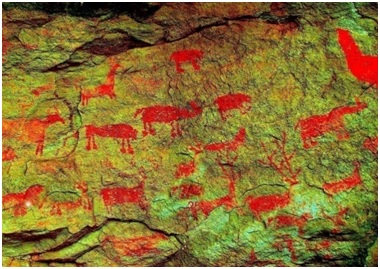Vijayanagara
Time Periods
Paleolithic
Mesolithic
Neolithic
Chalcolithic
Bronze Age
Iron Age
Classical Period
Post-Classical Period
Early Modern Period
Industrial Period
Contemporary Period
Time Periods
Paleolithic
Mesolithic
Neolithic
Chalcolithic
Bronze Age
Iron Age
Classical Period
Post-Classical Period
Early Modern Period
Industrial Period
Contemporary Period
Location
About
Vijayanagara (transl. 'City of Victory') was a city at the modern location of Hampi, in the Indian state of Karnataka. Vijayanagara was the capital city of the historic Vijayanagara Empire. Located on the banks of the Tungabhadra River, it spread over a large area and included sites in the Vijayanagara district, the Ballari district, and others around these districts. A part of Vijayanagara ruins known as the Group of Monuments at Hampi has been designated as a UNESCO World Heritage Site. Hampi, an ancient human settlement mentioned in Hindu texts, houses pre-Vijayanagara temples and monuments. In the early 14th century, the dominant Kakatiyas, Seuna Yadavas, Hoysalas, and the short-lived Kampili kingdom, who inhabited the Deccan region, were invaded and plundered by armies of Khalji and later Tughlaq dynasties of the Delhi Sultanate. Vijayanagara was founded from these ruins by the Sangama brothers, who were working as soldiers in the Kampili Kingdom under Kampalidevaraya. The city grew rapidly. The Vijayanagara-centred empire functioned as a barrier to the Muslim sultanates in the north, leading to the reconstruction of Hindu life and scholarship, multi-religious activity, rapid infrastructure improvements, and economic activity. Along with Hinduism, Vijayanagara accepted communities of other faiths such as Jainism and Islam, leading to multi-religious monuments and mutual influences. Chronicles left by Persian and European travellers state Vijayanagara to be a prosperous and wealthy city. By 1500 CE, Hampi-Vijayanagara was the world's second largest medieval era city (after Beijing) and probably India's richest at that time, attracting traders from Persia and Portugal. Wars between nearby Muslim Sultanates and Hindu Vijayanagara continued, however, through the 16th century. In 1565, the Vijayanagara leader Aliya Rama Raya was captured and killed, and the city fell to a coalition of Muslim Sultanates of the Deccan Plateau. The conquered capital city of Vijayanagara was looted and destroyed for 6 months, after which it remained in ruins.
Plan Your Visit
Details
- Country
- India
- Source
- Wikipedia
More Sites in India

Ambadevi rock shelters
Prehistoric rock shelters with pictographs and petroglyphs
Dohan river
Explore this archaeological site.
Fatehpur Sikri
Explore this archaeological site.
Jivakarama vihara
Explore this archaeological site.
Sarkhej
Explore this archaeological site.
Mallikarjuna Temple, Srisailam
Explore this archaeological site.
